The Savannah regional office of the National Commission for Civic Education (NCCE) is calling on the general public to help protect the peace enjoy in Ghana by reporting any suspicious activity that could lead to violent extremist acts.
The NCCE regional director, Mr Issaka Zito made the call during a sensitization session with tertiary level institutions on Preventing and Countering Violent Extremism (PCVE) issues in the Savannah region and Ghana at large at the Damongo Nursing Training College assembly hall on Saturday, July 8, 2023.
Addressing students of the college, Issaka Zito explained that the National Commission for Civic Education (NCCE) as part of its planned activities under the European Union (EU) Supported, Preventing and Countering Violent Extremism (PCVE) action in the northern regions and other hotspots in Ghana, the Commission’s regional offices are carrying out sensitization sessions for tertiary-level institutions on PCVE issues. These engagements are meant to inculcate a sense of belonging, and patriotism with a common purpose that seeks to build a strong, vibrant, and united Ghana, to prevent violence and radicalization among students.
Most importantly, the activity seeks to equip students with relevant information on preventing and containing violent extremism in their communities.
The Commission’s broader theme for the year 2023 is; “30 Years of Consolidating Constitutional Democracy: Building National Cohesion through Civic Education and Participation in Local Governance”.
The NCCE is celebrating 30 years of consolidating Ghana’s democratic gains and national unity and reinforcing the civic values in students.
“As the Commission celebrates 30 Years of Consolidating Our Democratic gains and building National Unity, it’s important to reinforce civic values in students aimed at reorienting their attitudes towards playing positive roles in our democratic journey.
Again, this activity is aimed at engendering peace, tolerance, social cohesion, and participation in the fight against violent extremism. Also, the project focuses on empowering the citizens to be security conscious and to volunteer information to the security agencies on suspicious characters in an attempt to halt possible attacks”.
He reminded participants to note that Ghana is the only country we have in this world. Therefore, we have the responsibility to protect it. Stay alert, and watch your neighbors. Report suspicious people to the security agencies to promote peace in the community we live in, he added.
The students were taken through peace-building mechanisms and gender dimensions of violent extremism and strategies for enhancing social cohesion.
Mr. Vitus Yelewere, the operations manager for COGINTA Ghana, an NGO into peacebuilding and conflict resolution, appealed to the students to be watchdogs everywhere they find themselves because domestic terrorism is a stepping stone to an exciting one. He said some violent extremists get into various communities as humble persons. Some of them come to settle and farm and others come to do trading. In the course of farming or trading, they take advantage of the hospitality of the people, to learn more and then design strategies to recruit some youth into their activities.
He cautioned students to report any act of suspicious activity to authorities for early redress.
Recently some West African neighboring countries such as Burkina Faso, Guinea, and Mali experienced some form of instabilities because authorities in those countries failed to observe and act on some glaring negative signs, hence leading to political instabilities in their countries.
Mr. Vitus Yelewere further called on the security of Ghana to keep up with the good works and encouraged the current administration to assist the security to help prevent any violent situation.
Vitus Yelewere said conflict is a good thing but becomes bad when wrong approaches and reactions are used to address situations.
He reminded students that everybody is a potential source of radicalization and so they shouldn’t push people beyond their limits.
He also advised the students to use social media to promote positivity and peace and avoid sharing images and videos that are unverified. Sharing unverified images or videos is dangerous and can lead to violent conflicts.
Touching on gender and violent extremism, he explained that women and children have been denied opportunities in education, top decision-making, and leadership roles among others due to our sociocultural practices. However, when there is violence, these women and children suffer the most, they are the worst victims of violence.
Vitus Yelewere added women should be very careful with what they say since they could be promoters of violence through exaggeration. Women can steer emotions of the public and this could lead to extreme violence.
As student nurses, he advised them to see themselves as promoters of peace by listening more to people and choosing peaceful routes to attend to them and their clients whenever they are engaging other people.
Major Naariyong (2IC) who made a presentation on behalf of Lt. Col. Hoffman, the regional commander, of Ghana Armed Forces – 155 Armoured Regiment, Savannah region, commended the NCCE and European Union (EU) for undertaking such a good initiative.
Major Naariyong said that preventing and containing violent extremism boils down to seeing something and saying something (see something say something).
This according to him consists of preventing violent extremism, pre-empting/anticipating what will happen, protecting it, and giving good response to violent extremism when it happens. Thus, prevent, pre-empt, protect, and respond, are the four powerful points to take note of in the issues.
Early warning signs and early reporting of suspicious activities to authorities will assist the security and other stakeholders to prevent violent extremism. He encouraged the students to quickly report any suspicious activity to closer authorities and observe the process to help the nation keep enjoying the peace.
He appealed to all to assist stakeholders with information by dialing “see something say something” short code, 999 to report issues.
He also urged the students to help sensitize family and friends, remain vigilant, and try to identify legitimate owners of all properties in their localities.
Scores of students who spoke to padfm.com.gh expressed gratitude to NCCE and partners for such a timely sensitization. They believe this will help improve their observations both in school and at home. They also promised to share the knowledge learned with others.
Chief Tolodompewura Ahmed Abdallah (Chief Monor), the Savannah regional administrator for Commission on Human Rights and Administrative Justice and chairman for the program in his closing remarks, urged the participants to put into practice the necessary skills learned during the sensitization. Keeping the skills and not practically executing the skills won’t be a good attitude, he advised.
The program saw students of Damongo Nursing Training College receive sensitization on peace-building mechanisms and gender dimensions of violent extremism; strategies for enhancing social cohesion, identifying early warning signals, Community surveillance, and basic community-based strategies for countering arms proliferation as mechanisms for preventing and Countering violent extremism in Ghana.
There was an open forum for participants' contributions, questions, and suggestions.
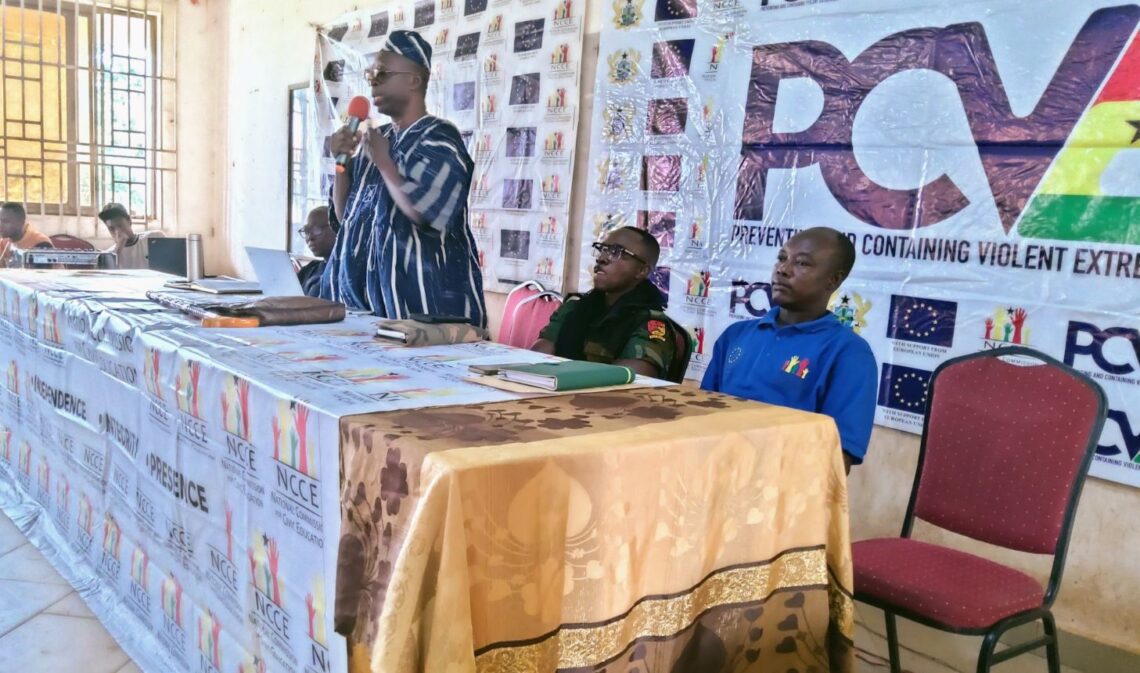
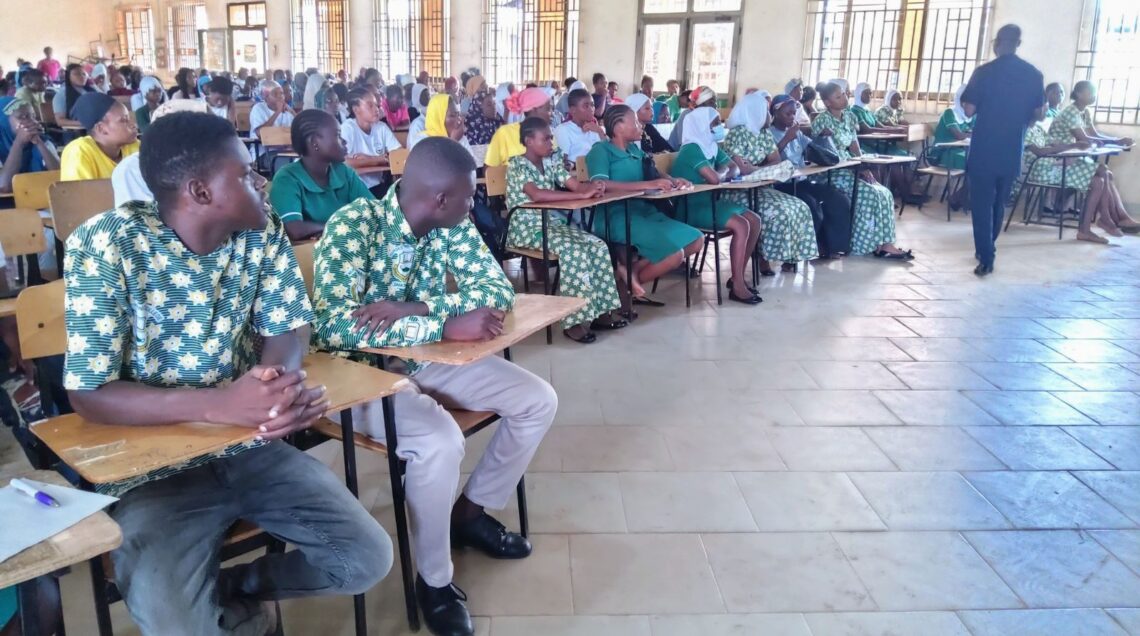
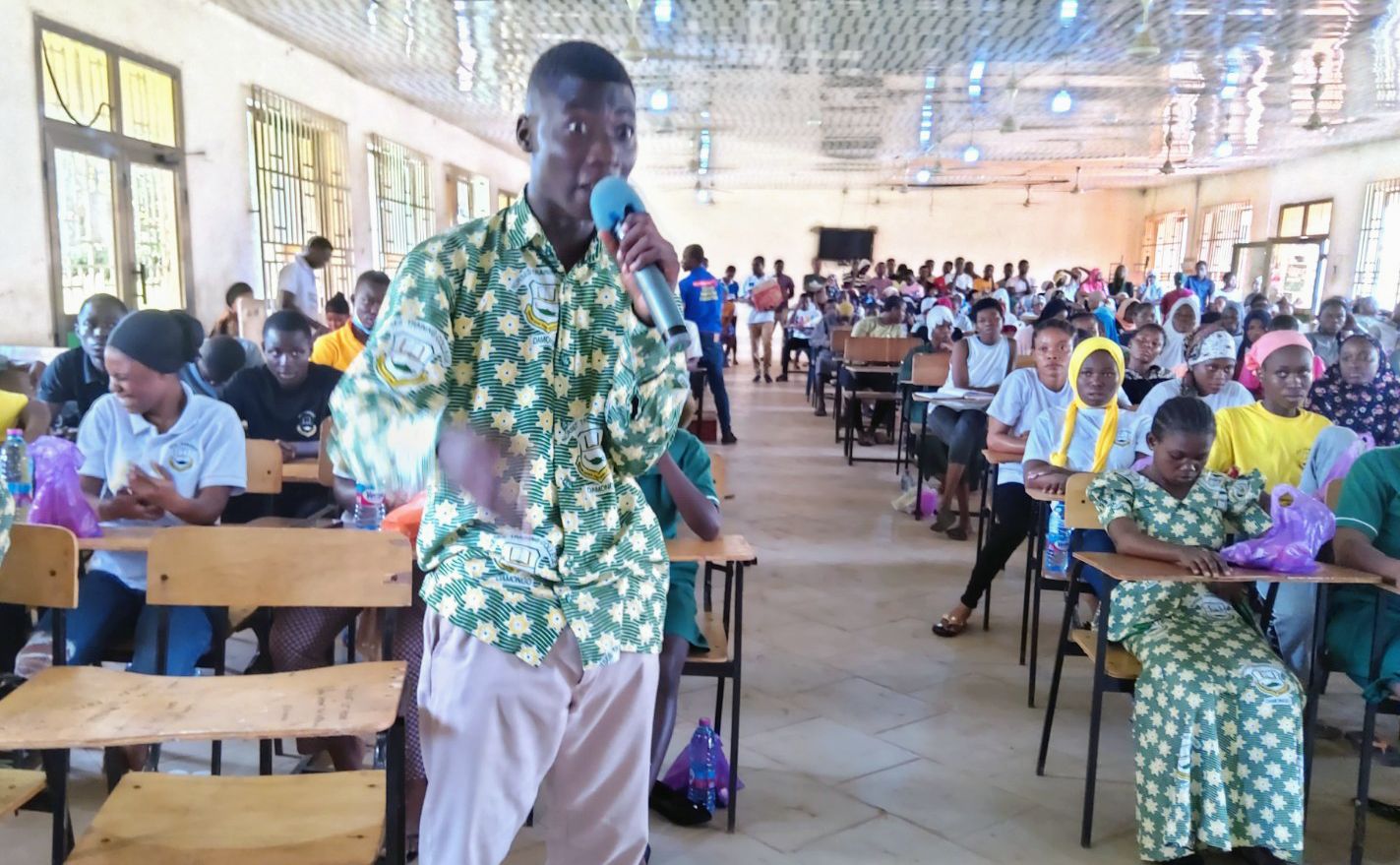
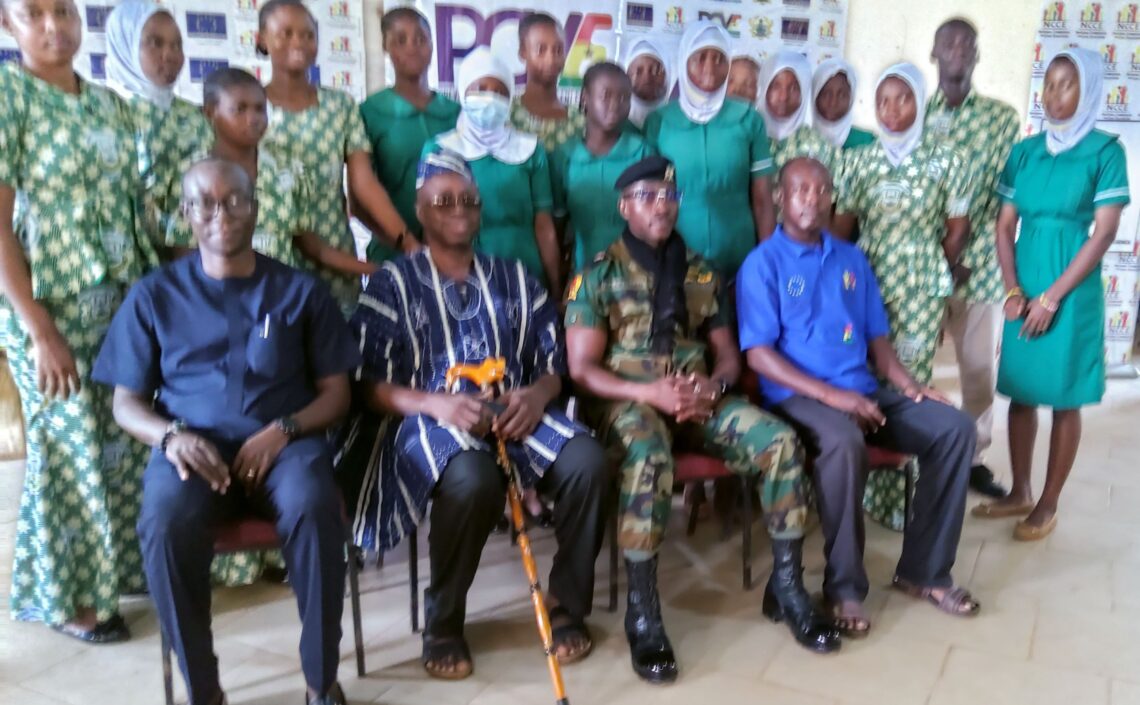
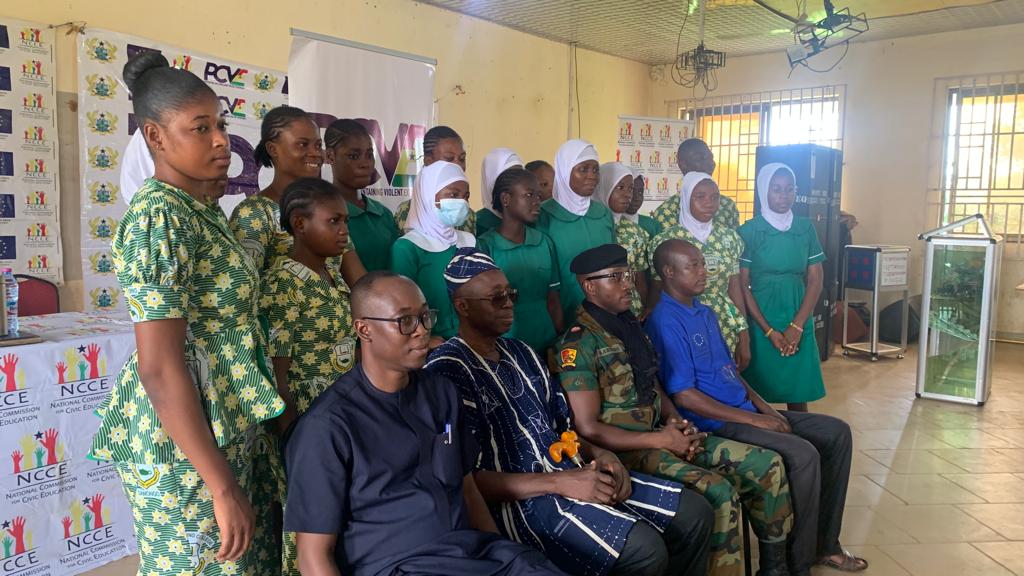
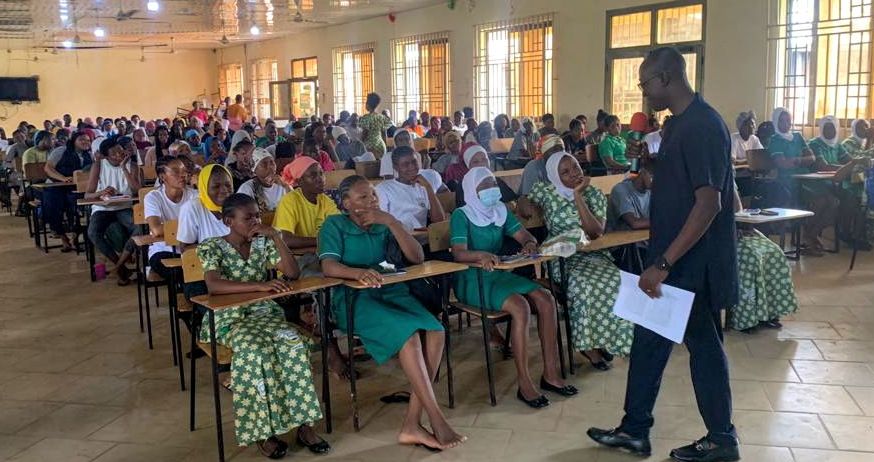
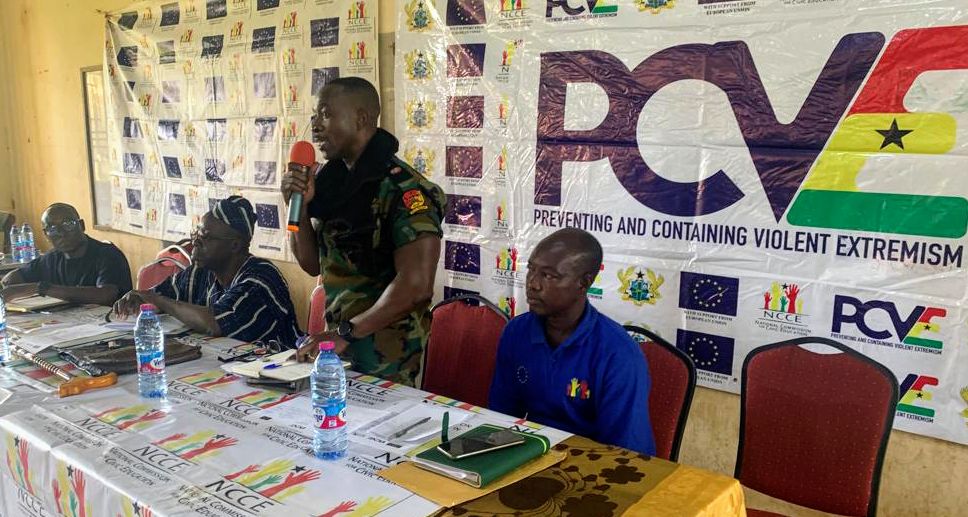
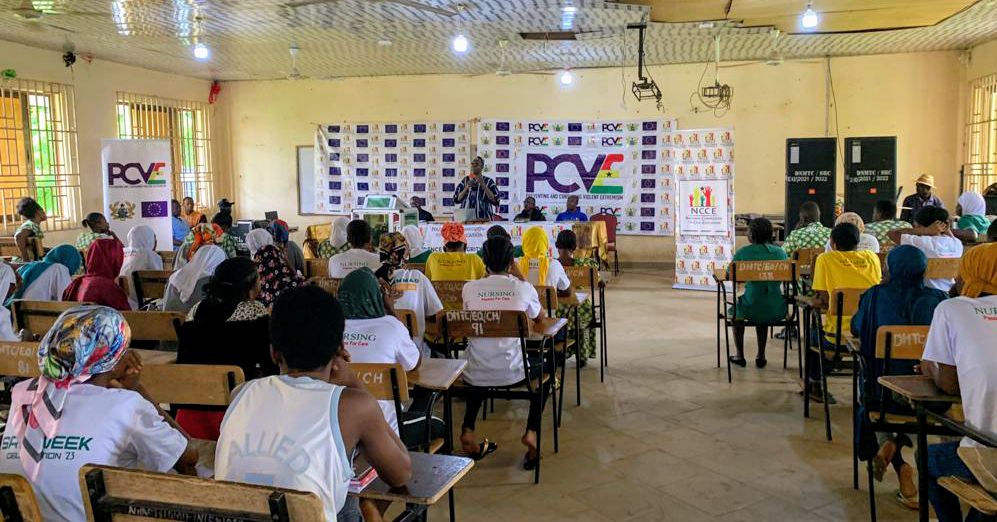
_
Follow us on our social media pages for more stories and posts from the NCCE.
https://www.instagram.com/nccegh1/
https://www.facebook.com/nccegh/


Leave a comment